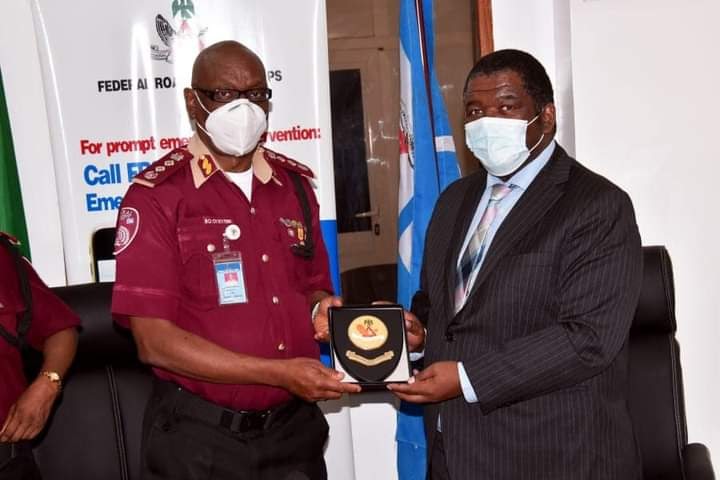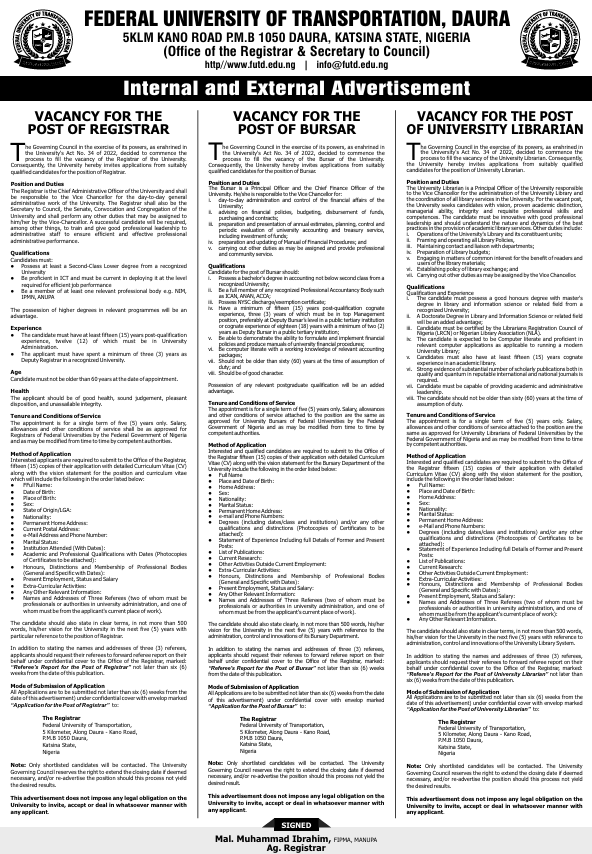In search for strategic initiatives that could lead to reduction of crashes and fatalities in south-western part of Africa, particularly Namibia, the Namibian High Commissioner to Nigeria, His Excellency, Mr Humphrey D Geiseb has expressed the highest level of satisfaction with the height of successes and technological drive achieved by Federal Road Safety Corps, as he seeks for a veritable ground for the two countries to explore cooperation in the area of road safety and crash reduction.
In a statement by Bisi Kazeem, the Corps Public Education Officer, the High Commissioner stated this during his visit to the national headquarters of the Federal Road Safety Corps in Abuja on Tuesday. According to him, Mr Humphrey revealed that Namibia has found FRSC as a model to be domesticated in their country, noting that his visit was to find out what the FRSC has put in place to mitigate crashes in Nigeria that has led to massive reduction in deaths and injuries on the road, so as to replicate this success story in Namibia.
“What we will learn from your success stories, I believe, will help reduce road traffic crashes in my country. Our supreme interest is not on the crash itself, but on how soon one can get rescued and urgent medical attention from the point of crash. I must say that I am honoured to be acquainted with the strategies put in place by the Corps to mitigate crashes in Nigeria”.
He added that the search for what Namibia should do to end all incidences of crashes in the country, particularly during festive seasons is the cardinal factor that informed the decision for the visit.
In his response, the Corps Marshal FRSC, Dr Boboye Oyeyemi commended the commitment of Namibian Government to the safety of lives and properties in their country and the existing mutual relationship between the two countries.
While explaining how herculean saving lives on Nigeria’s 204,000 km road network stretched across a land mass covering over 923,000 square metres could be, Oyeyemi noted that the Corps was able to achieve great successes through series of comprehensive support received from successive governments in Nigeria, beginning from 1988 when the Corps was established. He also pointed out other strategic interventions and supports from international donors, including the World Bank, European Union, United nations, World health Organization etc.
He urged the High Commissioner to emulate what is obtainable in Nigeria and ensure that the Agency saddled with the responsibility in Namibia is properly equipped for optimal performance, as he thanked President Muhammadu Buhari for his unflinching support and commitment to the safety of lives and properties of all road users in the country.













